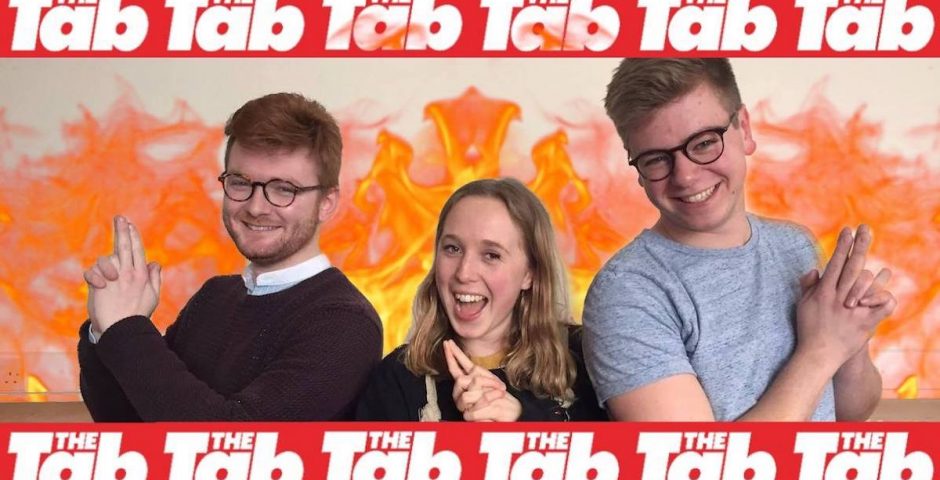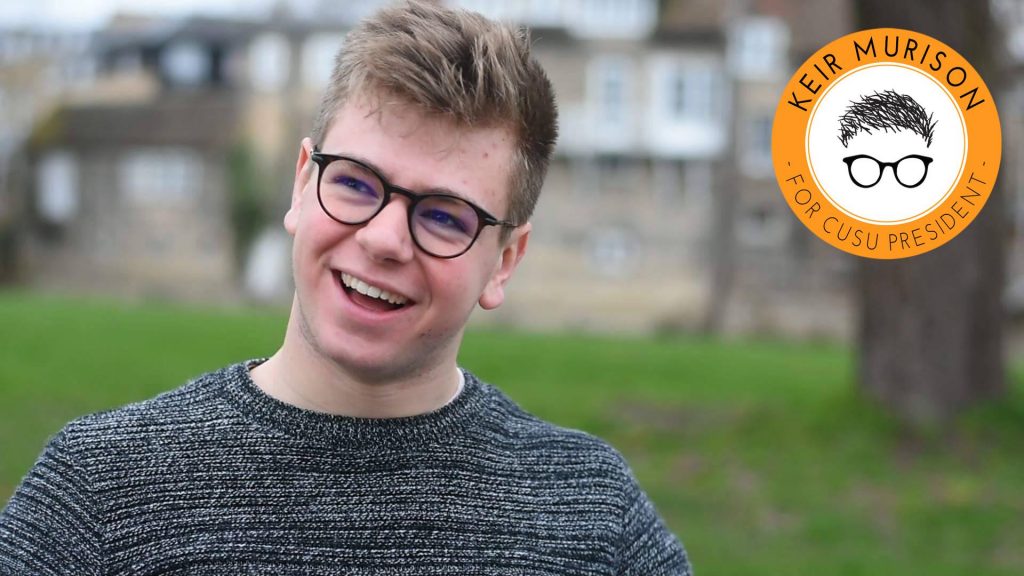
CUSU Presidential Candidates: The good, the drab, and the buzzwords
Candidates aim for style over substance.
CUSU. It’s that thing you’ve heard of, but still mistake for the Cambridge Union. It’s the go-to butt of the joke. It’s Cambridge’s most staggeringly incompetent society. It’s the reason that Varsity has so much content for once.
Right now CUSU seeks its next President. Over the past few days campaigning has been intense. It’s been refreshing to witness an election which isn’t so easily clear-cut to call. We sat down with Jack, Keir and Daisy to discuss all fun things policy, opinion and strategy and to cut through the bullshit wannabe-Westminster reporting of student politics.
The descriptions good, drab, and buzzword appeared to be as interchangeable as the candidates. It took us over half an hour to get the them to start actually “engaging” with each other – a word which, while Keir might adore it, means nothing. Once they began to disagree with and challenge each other, personalities and competencies began to emerge.
Eventually when the dust settled, distinguishing between them was relatively easy. Keir represents everything that Daisy stands for but with some tangible ideas. Despite her JCR experience, Daisy failed to make an impression on us, raising concerns about the faith people place in the CUSU-establishment candidate. Jack, despite (or perhaps due to) being the self-professed CUSU outsider, brings a distinctive vision for policy and CUSU’s impact on the 85% of disillusioned Cambridge students. Whether he’d be able to bring the rest of the CUSU team on board is more dubious.

Jack called CUSU council a “mind numbing joke” Credit: Lucas Chebib
Critiquing CUSU was a recurrent theme but the candidates often fell short of offering convincing solutions. Answers were platitude galore: words such as ‘engagement’, ‘conversation’, ‘competence’ and ‘bureaucracy’ were flung around the room. “Practical” ideas were followed by sketchy and unspecific policies, and complaints were seldom backed up with examples.
Keir insisted that “CUSU needs to be having an active and ongoing engagement”. Daisy announced to eye-rolls: “I’m going to do some amazing campaigns and make big change in Cambridge University”. When asked if she could be more specific, she turned to her policy on intermitting, an example which she struggled to break away from or expand upon.
Where policy is concerned, Jack and Keir have the edge, but for different reasons. Jack’s vision is distinctive, accessible and transparent. (Oh lord, are they buzzwords too?). But the issues he focuses on – such as sports funding – aren’t as compelling as Keir’s emphasis on tackling mental health issues in Cambridge. As the former president of Student Minds Cambridge, Keir is certainly well qualified to recognise and address the issues facing student welfare, such as drinking societies, workload and sexual assault. Daisy even piped up to ask if she could interview him for her dissertation on drinking societies.

The hair, the glasses, the orange – Drury noticed the irony of the resemblance
Keir – who lost the class list campaign to Jack, sitting opposite – was adamant that he would respect the result of the referendum. “Class lists were never the most important issue, they were underlying of even what you two said in your editorial, that there were bigger issues and I actually agree with that, as much as you probably know I didn’t like that editorial massively.” Honesty and maturity are certainly signs of a strong leader.
Keir’s confidence on topics relating to mental health issues is to be expected, considering his experience. When discussion veered into broader territory, he increasingly blurred back into Daisy. On the issue of no-platforming, Daisy and Keir seemed to be in agreement. Daisy said “I don’t think it’s the place of CUSU, but I think sometimes no-platforming is appropriate.” Keir said “I only agree if it [platforming the speaker] is going to be damaging for student welfare”. Jack was resolutely against it.
The issue of no-platforming led naturally to the issue – and we mean issue – of autonomous campaigns. Keir and Jack largely side-stepped the questions, and Daisy’s praise – if you could call it that – of WomCam was mildly concerning: “I think they do a really great job, they do a lot of different things.” Apparently this is the kind of praise WomCam inspires, an abstract, great, job with ‘things’.

Daisy is the college daughter of the current President Amatey Doku
Despite this lukewarm affirmation, Daisy didn’t think WomCam does a good job of representing all women in Cambridge: “Probably not, because I don’t think it’s really possible to represent all women.” When asked “surely that is what they claim to do”, the question was avoided. We hope that the candidates answer their exam questions more directly than ours.
We ended the interview by asking what they thought their biggest weaknesses are. Let’s just run through the initial bullshit answers they gave us: Daisy thinks she cares too much, Keir thinks he over-thinks, and Jack worries that his weakness is being a control freak. Are your eyes rolling? So were ours. So we re-phrased, asking them to tell us what they weren’t “overly” good at. In sum, using their words, we found that: Daisy is “naive”, Keir is “arrogant” and Jack is a “twat”. That said, both of the boys thought they they had performed the strongest in the interview, whereas Daisy thought she had done the worst. Well, at least we didn’t have to be the ones to say it.
For competent and decisive vision, vote Jack. For compassionate leadership, vote Keir. To keep the CUSU establishment standing, vote Daisy.
Voting closes March 10th. You can vote here.









































